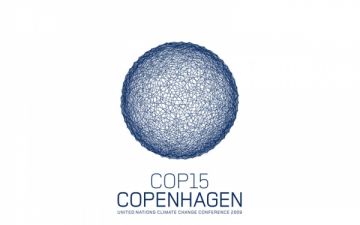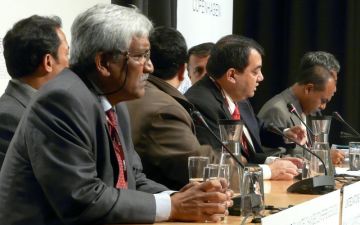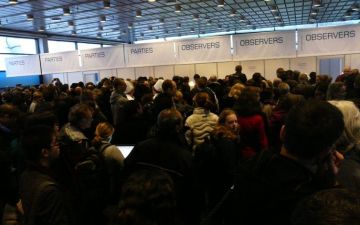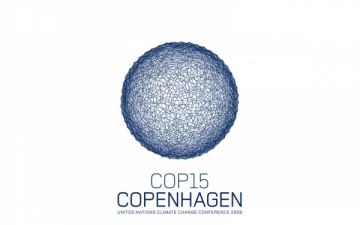Ticking Clocks and Stumbling Blocs at Copenhagen
William Wheeler, for the Pulitzer Center
Copenhagen, Denmark
With only a week to go, negotiators at the Copenhagen climate summit say that longstanding divisions between industrialized and developing nations have so far proven insurmountable.
The fissures were clear at a press conference Friday morning, which featured delegates from India, China, Bangladesh, and the European Commission.







